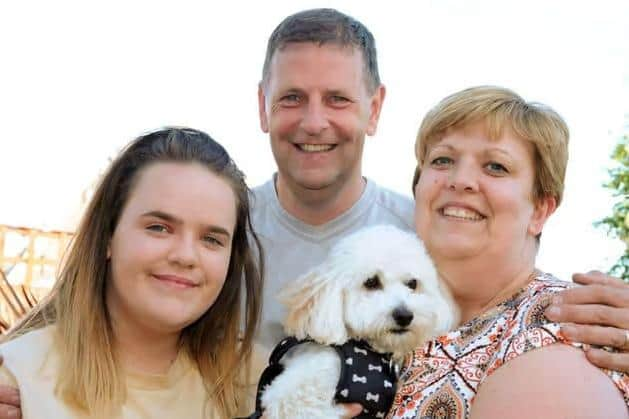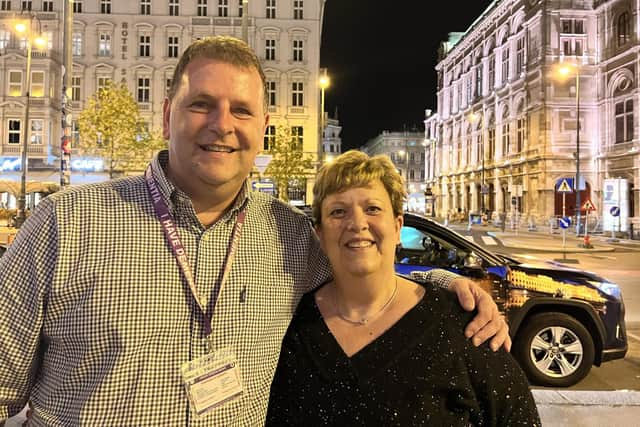Mansfield family 'holds onto hope' for dad in wake of Alzheimer's drug breakthrough
and live on Freeview channel 276
Mick Bonser was diagnosed with Alzheimer’s disease in 2018 at the age of 51, after two serious seizures forced him to “immediately lose his memory”.
Karen, his wife, has witnessed his steady cognitive decline and reduction in communication skills since then, with the father-of-one, a rescue worker at Bilsthorpe Colliery during the disaster in 1993, slowly starting to forget simple tasks such as “how to tell time on a 24-hour clock”.
Advertisement
Hide AdAdvertisement
Hide AdFormer IT worker Mick also appeared on BBC One’s Our Dementia Choir in 2019, which looked to examine the positive impact music can have on people living with the illness.


But Karen fears this breakthrough announcement may be too late for them.
Karen said: “We hold onto hope until told otherwise. There’s no denying the results from the drug trials are wonderful to hear, it’s a moment to celebrate in the dementia research world.
“As a carer for someone living with the condition now, hearing that it’s likely not to be available for a few more years, it’s time that could take us and others over a threshold for being eligible, and that’s even if Mick would have been suitable.”
Advertisement
Hide AdAdvertisement
Hide AdThe new drug – lecanemab – could delay decline of memory and thinking skills of people with early stage Alzheimer’s by more than seven months.


National charity Alzheimer’s Society says there is a still a long way to go before lecanemab could be available on the NHS and reinforces its calls for better dementia diagnosis now – a call that Karen echoes.
She said: “The news brings much needed hope for people in the future, but right now the medical system needs urgent attention to improve dementia diagnosis, not just making sure people are diagnosed early enough but they have an accurate diagnosis and good quality care to support them afterwards.”
Earlier this year Alzheimer’s Society led a campaign – It’s not called getting old, it’s called getting ill – to encourage people worried about their own or their loved ones’ memory to recognise signs and seek support in getting a timely diagnosis.
Advertisement
Hide AdAdvertisement
Hide AdDr Richard Oakley, associate director of research at Alzheimer’s Society, said: “More than ever there’s a need to prioritise early diagnosis, through wider access to PET brain scans and research to get blood tests into the clinic, so people can access these drugs when they become available.
“The exciting results offer our best hope yet for not only delaying symptom progression for people with early stage Alzheimer’s, but, significantly, slowing the loss of quality of life for them and their carers.
“Lecanemab is being explored in further trials to see how well it works over a longer period of time and the difference it could to make to people before their symptoms have even developed.
“The safety of drugs is crucial and it did have side effects, but they will be closely looked at when decisions are made about whether or not to approve lecanemab, to see if the benefits outweigh the risks.”
